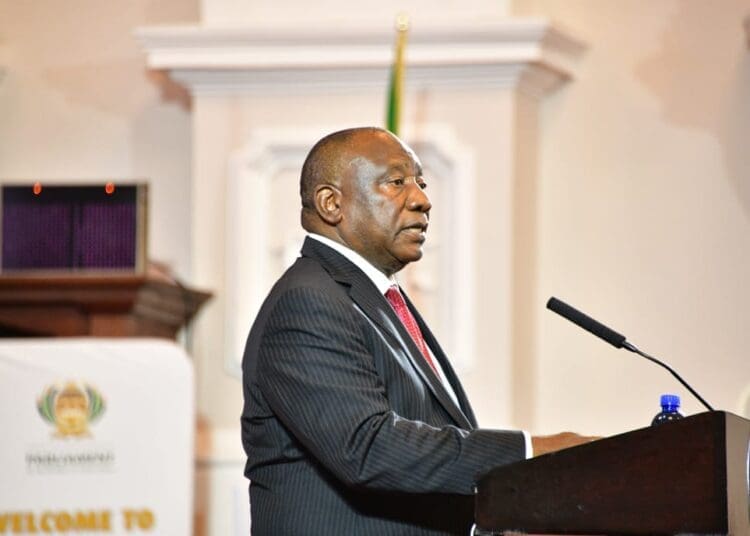By Moipone Malefane
South Africa’s role as Presidency of the G20 is a remarkable opportunity for the country’s SMMEs. President Cyril Ramaphosa can leverage his position to enhance global visibility and open doors for smaller businesses to thrive both locally and internationally. Through strategic policymaking, enhanced trade relationships and increased global exposure, SMMEs have the potential to flourish like never before. However, it will require deliberate and targeted action from both government and business leaders to ensure these opportunities are maximised. With the right approach, the G20 Presidency can serve as a catalyst for a new era of growth, innovation and international recognition for SMMEs.
One of the immediate benefits of the G20 Presidency is the heightened global attention. With world leaders and key business figures convening to discuss global economic issues, our SMMEs can take advantage of this platform to showcase their innovations, products and services. This exposure could attract international buyers, partner and investors, expanding the market opportunities beyond national borders. In particular, sectors such as technology, agriculture and renewable energy can shine. SMMEs in these sectors will be able to present their solutions to a wider, international audience, fostering cross-border collaborations and partnerships.
The G20 summit provides South Africa with a unique opportunity to advocate for policies that support smaller enterprises. The country can facilitate discussions on improving trade relations, reducing barriers to entry for small businesses and enhancing access to global markets. This could lead to the creation of more favourable trade agreements and lower tariffs, which would directly benefit SMMEs looking to expand their businesses internationally. Furthermore, G20 dialogues around funding and investment can be channelled to promote access to finance for SMMEs, particularly in areas such as venture capital and green finance. Many small businesses struggle to access capital due to high-risk perceptions or insufficient collateral. However, through G20 engagements, South Africa can push for reforms that ease this bottleneck, encouraging investment flows into the sector.
The Presidency also provides a valuable opportunity for knowledge exchange between countries. It can open up channels for learning from other G20 nations about policies, best practices and technologies that have successfully fostered the growth of SMMEs. By initiating dialogues around innovation and entrepreneurship, South Africa can position itself as a leader in supporting small businesses and adapting global strategies to its local context. Additionally, South African SMMEs could benefit from specialised training and skill-building initiatives in areas such as digital transformation, sustainability and financial literacy. These resources could help businesses navigate global challenges, particularly in the context of the rapidly evolving digital and green economies.
Ramaphosa is in a strong position to shape global economic policies, particularly those related to entrepreneurship and SMME growth. The country can advocate for a more inclusive economic framework, ensuring that SMMEs are not left behind in global development agendas. For example, South Africa can push for frameworks that support women and youth entrepreneurs, who face unique barriers to entry. Furthermore, the country could promote the use of digital platforms, including e-commerce and fintech, to empower smaller businesses, The digital economy is pivotal to the future of small businesses, and South Africa could spearhead initiatives that help its SMMEs transition into the digital age and ensure they remain competitive globally.
Ramaphosa’s leadership role in the G20 can also help to improve the entrepreneurial ecosystem locally. For the next year, South Africa will have the attention of major global stakeholders who are interested in Africa’s economic potential. By advocating for pro-SMME policies, supporting infrastructure development and ensuring a conducive environment for innovation, South Africa could spark a wave of entrepreneurial activity that benefits SMMEs at the grassroots level.

























































